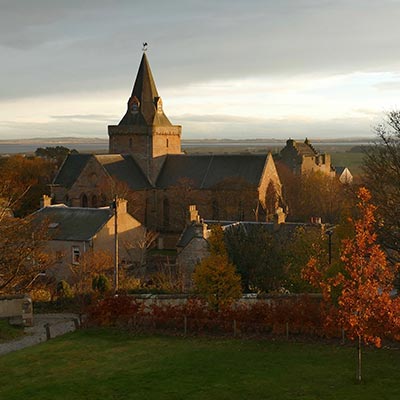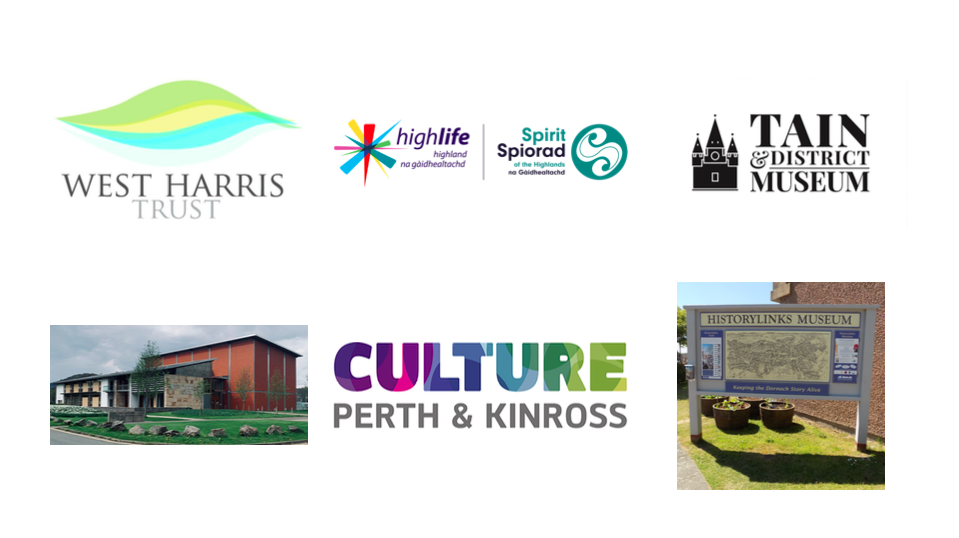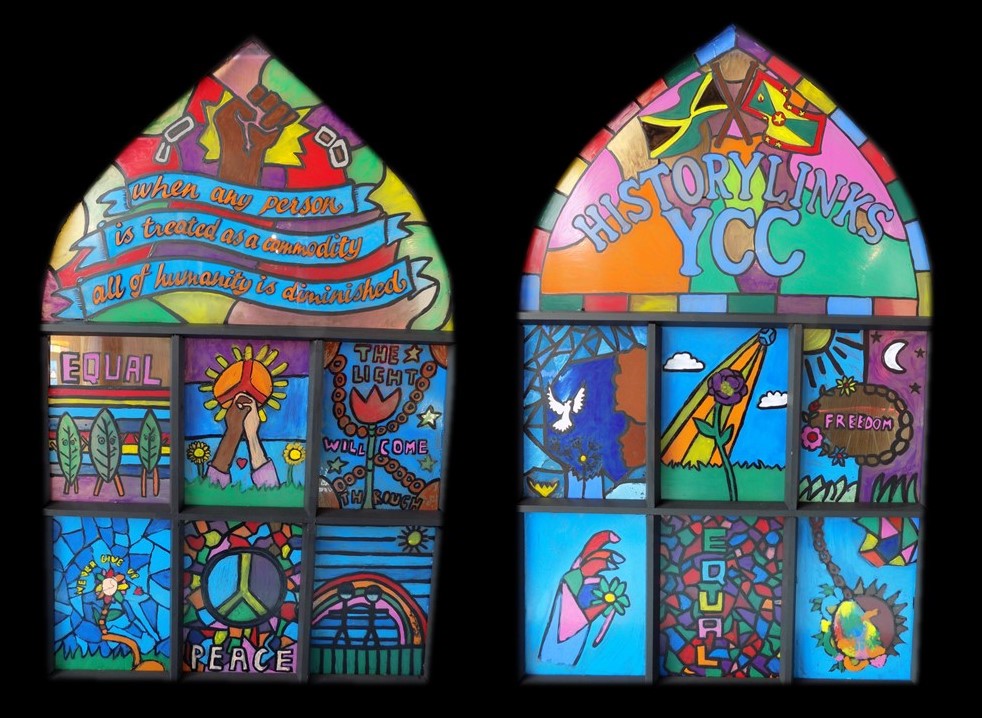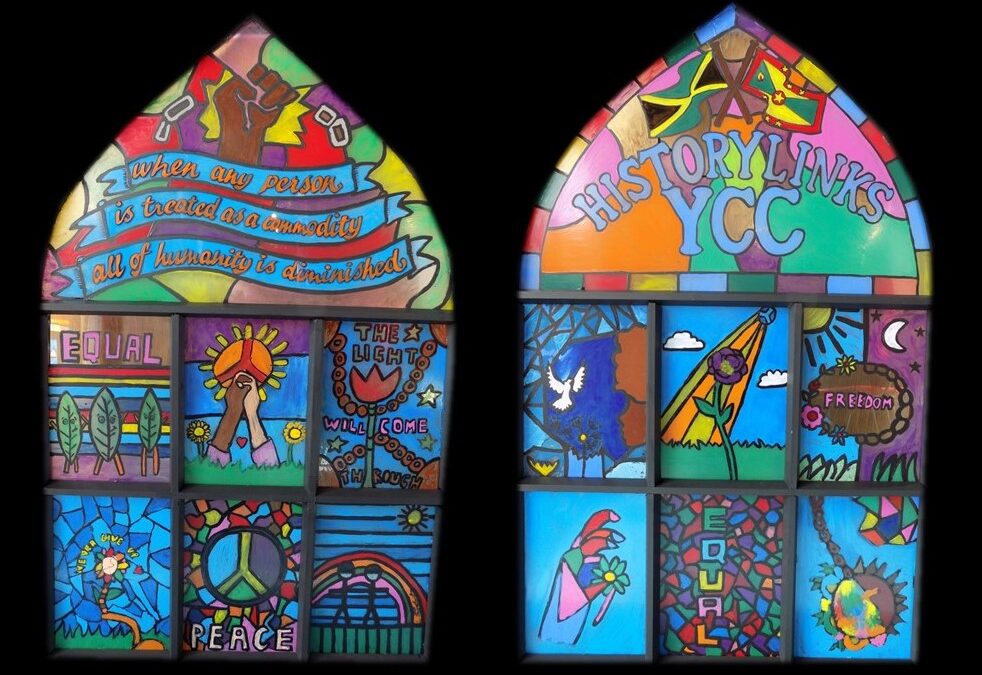Juliette Desportes has recently finished a collaborative internship between the IHR’s Centre for the History of People, Place and Community and the University of the Highlands and Island’s Centre for History. In this blog post she reflects on the findings of this internship, during which she interviewed historians at the IHR and UHI and public partners in the Highlands and Islands about their experiences of engaging in place-based public history.
The National Council on Public History defines public history as ‘the many and diverse ways in which history is put to work in the world’. For historians, ‘doing’ public history is thus to take their research beyond the walls of the university, literally by ‘putting it to work’ for members of the public. These endeavours may take different forms, from the transmission of historical knowledge and skills through workshops or talks, or the co-production of knowledge and knowledge exchange with ‘the public’, broadly defined.
If historians broadly agree over what public history is and does, it becomes more difficult to assess what makes it good. In an age where academics must prove and measure their impact on society, identifying good practice in public history has become a necessity, not only to improve the ways in which members of the public benefit from historical research, but also to advocate for historical research as a public good. The internship ‘Place-based public history in the Highlands and Islands’ ran from July to October 2023 and sought to critically reflect on public and community history as a form of academic practice. The research was the result of an ongoing collaboration between the Centre for the History of Place, People and Community (CHPPC) at the IHR and the UHI Centre for History.

My principal objective as research intern was to survey the public history activities led by the Centre for History across the Highland and Island region, identify good practice and transferrable insights in public and community history, and potential barriers to further collaboration. Interviews took place with nine members of staff at the Centre and eight organisations beyond the Higher Education (HE) sector. Some of these organisations had previously collaborated with the Centre in the past, while others had not. The majority of interviews took place online and were conducted in a semi-structured style.

Interviews with non-HE organisations focused on their experience of collaboration with academic partners at the Centre for History and across academia more generally. I hoped to understand how these organisations benefitted from collaboration and the ways in which their experience could be improved. These conversations led to the identification of several criteria by which to measure ‘good’ public history (in no particular order).
Good public history is built on long-term relationship and trust
All non-academic participants felt that meaningful collaboration was the result of positive and trusting relationships with historians, usually developed over several years. An emphasis was placed on the need for historians to offer their time and be approachable for projects to develop. By contrast, criticisms were directed at extractive approaches: academics being parachuted in a community, only to leave again after a short-time and with little to no acknowledgement of help received ‘on the ground’.
Good public history is the outcome of knowledge exchange and, when possible, co-production
Participants reported that collaboration with academics had granted them access to a large pool of historical skill and expertise. Historical expertise was in turn recognised as a guarantee for ‘historical truth’ and ‘academic standard’, especially for heritage institutions such as museums. It was also clear that collaboration should be mutually beneficial, but that the principal beneficiaries should be organisations beyond academia and the audiences these institutions seek to engage with. Some projects led by Centre for History staff were the result of knowledge co-production. Historylinks Museum, Dornoch, has run a nine-week ‘Legacies of Slavery in Scotland’ programme for their Young Curators Club to better understand the links between Dornoch and Grenada, in the Caribbean. This programme was conducted in partnership with historians based at the Centre and included an investigation of some of the stained-glass windows at Dornoch Cathedral, dedicated to the memory of Lewis Hoyes, a slave and plantation owner.

Good public history is inclusive and diverse
Both academics and non-HE participants expressed the desire to make history more diverse and inclusive. Highland and Island communities are not homogenous but include a diversity of voices and experiences. The majority of volunteers in heritage organisations are retirees, many of whom have been involved for a great number of years, and several participants noted that it was particularly difficult to engage with the 20-40 years old age bracket. Local politics were also mentioned as an important barrier to inclusivity, especially in tight-knit communities where everyone knows each other. These points spoke more broadly about the need for historians to engage with communities with a high level of awareness which only comes with experience and training.
The internship has been a wonderful opportunity to explore what public engagement looks like in different contexts. It has proved, I hope, the value of taking the time to gather feedback and speak to people about their experience. It became clear that for academics and non-HE participants alike, public history was associated to a high level of professional satisfaction and the feeling of doing something worthwhile. The internship is hopefully only the starting point, both of ongoing collaboration between UHI and the IHR, and of reflections on the ways in which academics can best serve members of the public.

Email: Juliette.desportes@glasgow.ac.uk. Twitter/X: @JulietteDespor1

